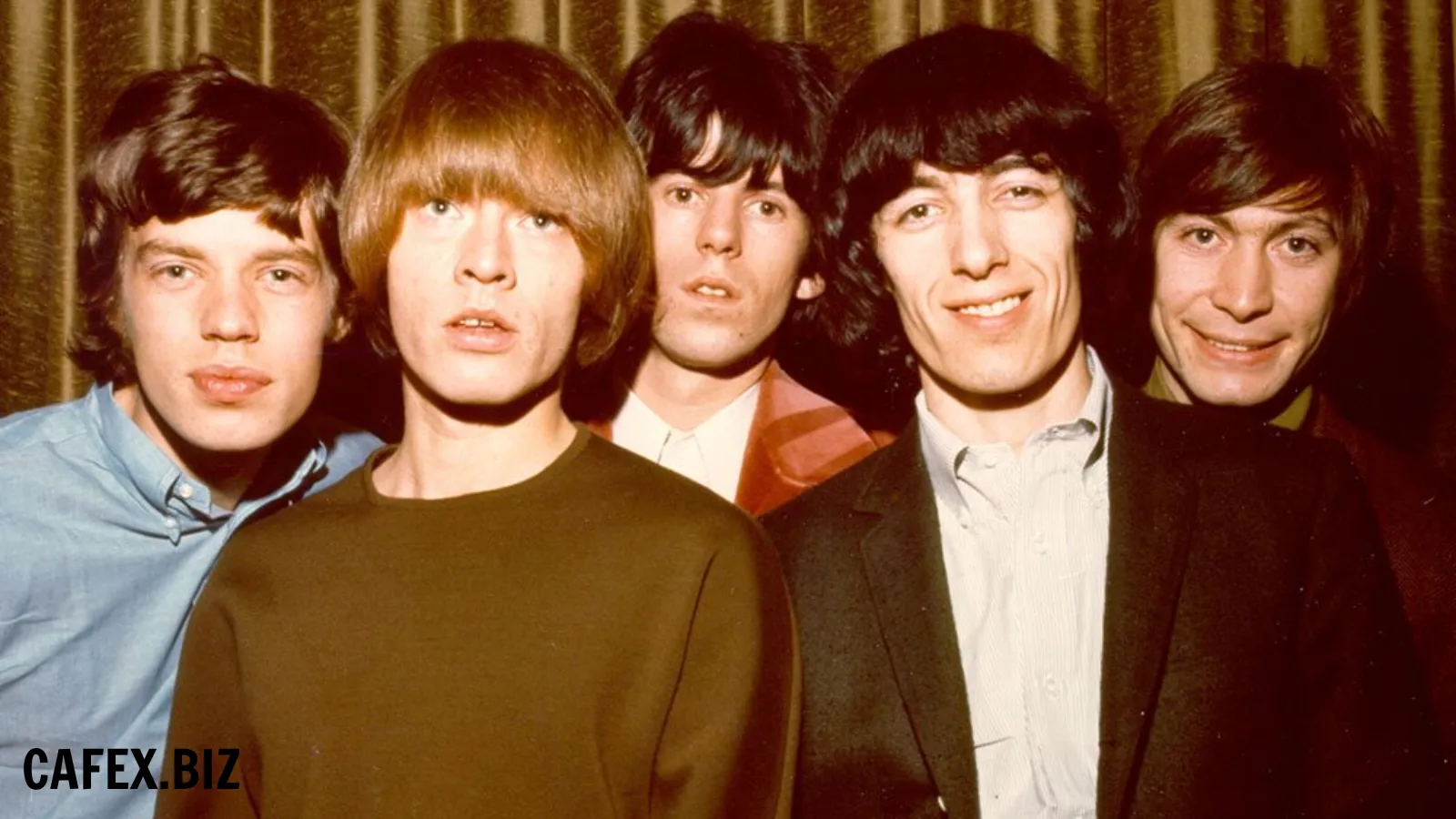The Rolling Stones: Rock 'n' Roll Legends
The Rolling Stones, often referred to as "The Stones," are one of the most iconic and enduring rock bands in history. Formed in London in 1962, the band became pioneers of the British Invasion, a wave of British rock bands that took the world by storm in the 1960s.
Over the decades, The Rolling Stones have continued to evolve, producing a vast and diverse catalog of music that has captivated audiences across generations. This article explores the history, music, and cultural impact of The Rolling Stones, a band that remains synonymous with rock 'n' roll.
Early Years and Formation
The Rolling Stones' roots can be traced back to a meeting between childhood friends Mick Jagger and Keith Richards in Dartford, Kent, England. The two had a shared love for blues and rhythm and blues music, and their passion for American rock 'n' roll artists like Chuck Berry and Muddy Waters brought them together.
In 1962, Jagger and Richards formed a band with guitarist Brian Jones, pianist Ian Stewart, bassist Dick Taylor, and drummer Mick Avory. The group initially called themselves "The Rollin' Stones," a name inspired by a Muddy Waters song. Later, they dropped the "g" from their name to become The Rolling Stones.
The British Invasion and Global Success
The Rolling Stones quickly gained attention in London's music scene, where they played in small clubs and pubs. In 1963, the band released their debut single, a cover of Chuck Berry's "Come On," which achieved moderate success in the UK. However, it was their second single, a cover of Bobby Womack's "It's All Over Now," that brought them their first UK number-one hit in 1964.
As part of the British Invasion, The Rolling Stones set their sights on conquering the American music market. Their first US tour in 1964 garnered massive attention, and they rapidly rose to fame in the United States with hit singles like "Satisfaction," "Paint It Black," and "Ruby Tuesday."
The band's dynamic frontman, Mick Jagger, and the electrifying guitar work of Keith Richards became the face of The Rolling Stones. Brian Jones's multi-instrumental talent and charisma added to their appeal, making them a formidable force in the rock 'n' roll scene.
The Rock 'n' Roll Bad Boys
Throughout the 1960s, The Rolling Stones built a reputation as the "bad boys" of rock 'n' roll, in stark contrast to The Beatles' clean-cut image. Their rebellious attitude, combined with their raw and edgy music, attracted a dedicated following of fans. The band members embraced their image, which included Keith Richards's trademark skull ring and Mick Jagger's swaggering stage presence.
However, their rebellious image also attracted controversy, particularly around their provocative lyrics and behavior on and off stage. The infamous 1967 arrest of Mick Jagger and Keith Richards for drug possession brought them unwanted attention from the authorities and the media.
Evolution and Musical Growth
In the late 1960s and early 1970s, The Rolling Stones continued to evolve their musical style. They experimented with different genres, incorporating elements of country, blues, and funk into their rock 'n' roll sound. Albums like "Beggars Banquet" (1968) and "Let It Bleed" (1969) showcased their musical diversity and maturity.
In 1971, The Rolling Stones released "Sticky Fingers," an album featuring the iconic cover designed by Andy Warhol, which included the classic "Brown Sugar" and "Wild Horses." The 1972 release "Exile on Main St." further solidified their status as rock legends, with its fusion of blues, gospel, and rock influences.
Rolling Stones Records and Touring
In 1971, The Rolling Stones established their record label, Rolling Stones Records, as part of a deal with Atlantic Records. This move gave the band greater artistic freedom and control over their music.
One of The Rolling Stones' defining features has been their electrifying live performances. Their tours, known for their high energy and spectacular stage setups, have consistently drawn massive crowds. The 1972 tour, supporting "Exile on Main St.," is particularly legendary and remains one of the most celebrated rock tours of all time.
Personal Loss and Resilience
The 1970s also brought personal challenges to The Rolling Stones. Brian Jones, a founding member of the band, tragically drowned in his swimming pool in 1969. His death marked the end of an era for the band, but they persevered and continued to create music that resonated with their fans.
In 1975, Mick Taylor, the band's talented guitarist, left the group, leading to the recruitment of Ronnie Wood, who became a permanent member of The Rolling Stones. Despite these changes, the band's chemistry and musical brilliance remained intact.
Later Career and Enduring Legacy
The Rolling Stones' success continued into the late 20th century and beyond. In 1981, they released "Tattoo You," which produced hit singles like "Start Me Up" and "Waiting on a Friend." The album's success demonstrated the band's enduring relevance and their ability to connect with audiences across generations.
Throughout the 1990s and 2000s, The Rolling Stones continued to release albums and embark on successful tours, consistently drawing large crowds and receiving critical acclaim. Their 1994 album "Voodoo Lounge" earned them a Grammy Award for Best Rock Album.
The band's 50th-anniversary celebrations in 2012 were a testament to their enduring legacy and their status as one of the greatest rock bands in history. They marked the milestone with a series of concerts and events, including a headline performance at the Glastonbury Festival.
Conclusion
The Rolling Stones' journey as rock 'n' roll legends spans over six decades, leaving an indelible mark on the music industry and popular culture. Their timeless hits, electrifying live performances, and enduring image as rock rebels have solidified their status as one of the greatest bands in history.
Through their music and their unapologetic attitude, The Rolling Stones have embodied the essence of rock 'n' roll, inspiring generations of musicians and fans. Their legacy as pioneers of the British Invasion and torchbearers of rock 'n' roll continues to shine brightly, leaving an enduring impact on the world of music and the hearts of millions of loyal fans.


